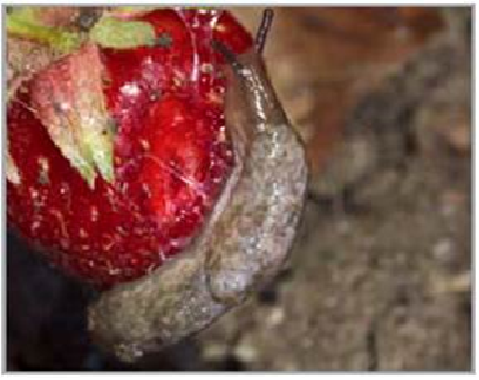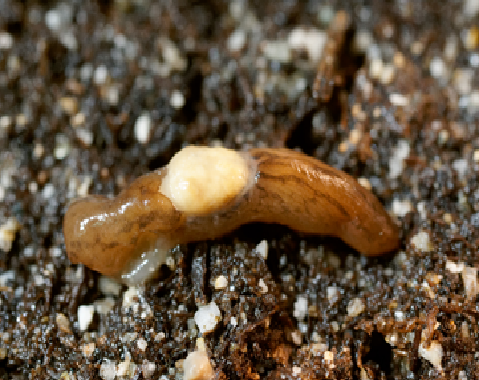Novel Molluscicide
Images


Top photo credit: Jack Kelly Clark
Bottom photo credit: Paul De Ley
Brief Description
UCR will be accepting commercialization plans for this case no. 2016-025 until 08/11/2023.
Background:
Slugs and snails are among the most problematic invasive agricultural and horticultural pests. They cause crop loss, reduce crop yield and quality, cause product shipment rejection, and transmit plant and human pathogens. The most commonly used chemical molluscicides are toxic to pets and other organisms. These chemical pesticides are also harmful to the environment, are not cost effective, and with variable effficacy that is highly influenced by environmental conditions such as moisture.
Brief Description:
UCR researchers have developed a novel potential biopesticide that targets slugs and snails using the recently discovered US strain of the nematode species Phasmarhabditis hermaphrodita. The European strain of this nematode (Nemaslug ®) is being used to successfully manage slugs and snails in Europe. Recent surveys show that consumers in the US are willing to pay more for a more effective and environmentally safe pest management alternative for these invasive gastropods. Phasmarhabditis hermaphrodita (singly or in combination with P. californica or P. papillosa) can be used effectively to manage slug and snail infestations, notably European brown garden snail (Cornu aspersum), Giant African land snail (Lissachatina fulica), gray field slug (Deroceras reticulatum) and greenhouse slug (Lehmannia valentiana).
Patent Status
| Country | Type | Number | Dated | Case |
| United States Of America | Issued Patent | 10,772,333 | 09/15/2020 | 2016-025 |
Advantages
Nontoxic and safer to humans, animals and the environment – specific to mollusks
Applications
- Specialty crops (horticultural, agricultural, other high-value crops)
- Urban landscape
- Home gardens
Contact
- Rekha Chawla
- rekha.chawla@ucr.edu
- tel: View Phone Number.
Other Information
Keywords
biopesticide, pest management options, nematodes, insecticide, biological pest control, gastropods, slugs, snails, mollusks, invasive pests, nemaslug
